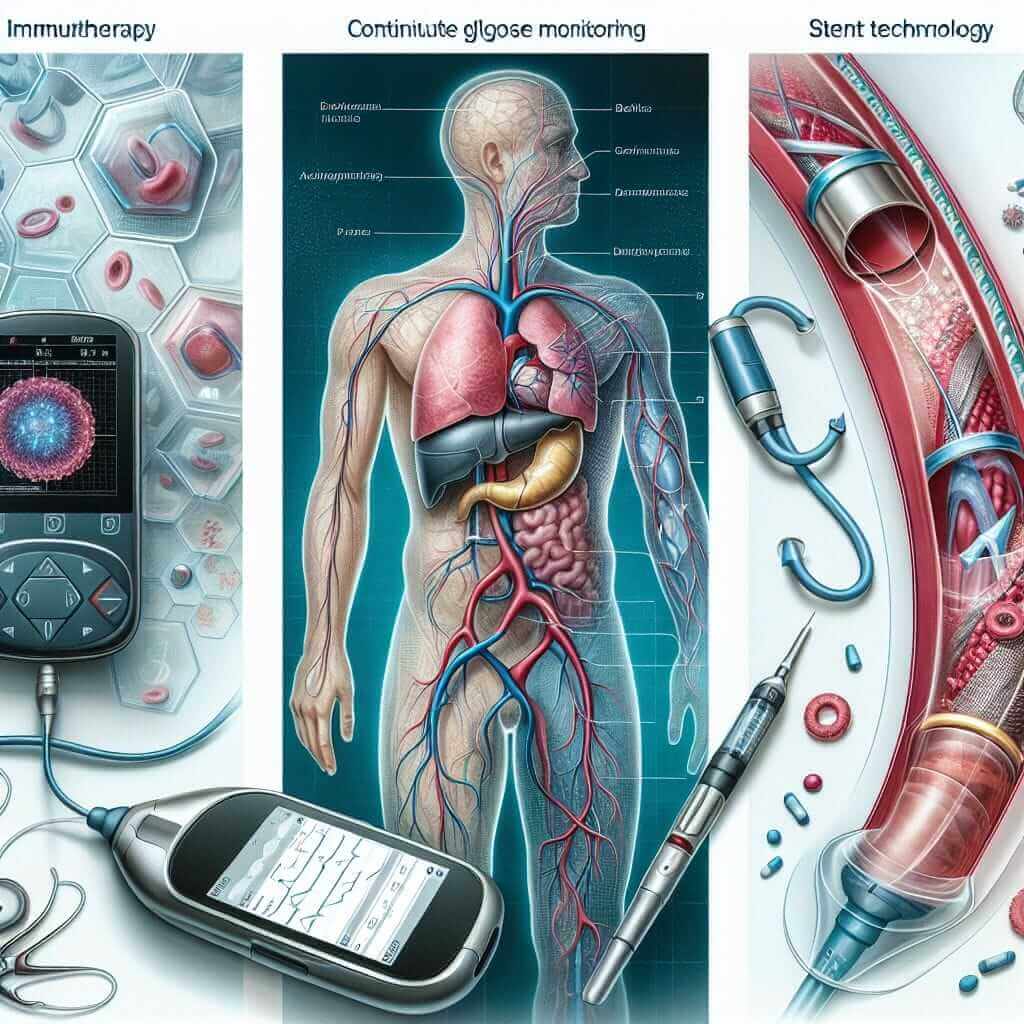The IELTS Reading Test is known for its rigorous and challenging nature, especially when it comes to tackling academic topics such as “Advances in Medical Treatments for Specific Diseases.” This topic is not only relevant and timely but has also been featured in past IELTS exams. Understanding medical advancements can significantly boost your reading comprehension skills, as it involves complex terminologies and sophisticated language structures.
In this article, we’ll dive into a high-quality reading practice that mirrors the real IELTS exam, focusing on the theme of medical advancements. You’ll find an easy-to-follow reading passage, accompanied by various question types to test your comprehension. Let’s explore this topic, master new vocabulary, and sharpen your skills for a top IELTS Reading score.
Sample Reading Passage
Advances in Medical Treatments for Specific Diseases
Medical science has seen exponential growth in the last few decades, particularly in the field of disease treatment. Notable advancements have taken place in the management of diseases such as cancer, diabetes, and cardiovascular ailments. This article explores not only the breakthroughs in treatments but also their implications for public health and patient outcomes.
Cancer Treatments
Cancer, a term for diseases characterized by uncontrolled cell growth, has traditionally been treated with surgery, radiation, and chemotherapy. However, recent advancements have revolutionized these conventional methods.
Immunotherapy: One significant breakthrough is immunotherapy, which uses the body’s immune system to fight cancer. Drugs such as monoclonal antibodies and checkpoint inhibitors have shown promising results in treating multiple types of cancer by enhancing the body’s inherent ability to eliminate cancer cells.
Targeted Therapy: Targeted therapies are drugs designed to target specific genes or proteins that are involved in cancer growth and survival. These treatments tend to be more effective and less harmful than traditional chemotherapy, minimizing damage to normal cells.
Diabetes Management
Diabetes, particularly Type 2 diabetes, is a chronic condition that affects how the body processes blood sugar (glucose). Advances in diabetes treatment have focused on improving blood glucose control and reducing complications.
Continuous Glucose Monitoring (CGM): CGM devices have made it possible for patients to monitor their glucose levels in real-time, leading to better management of blood sugar levels and reduced risk of severe hypoglycemia.
Artificial Pancreas: The advent of artificial pancreas systems, which automate insulin delivery based on continuous glucose monitoring, has transformed diabetes management, making it easier for patients to maintain stable blood glucose levels.
Cardiovascular Disease Treatments
Cardiovascular diseases include a variety of conditions affecting the heart and blood vessels. Innovations in this area have drastically improved patient outcomes and survival rates.
Stent Technology: Stents have become a cornerstone of cardiovascular treatment, particularly in treating coronary artery disease. Modern stents are drug-eluting, releasing medication that helps prevent artery blockage post-surgery.
Gene Therapy: Gene therapy holds promise in regenerating damaged heart tissue. Experimental studies have shown that inserting specific genes can stimulate the repair of heart muscle, potentially reversing the damage caused by heart attacks.

Sample Questions and Answers
Multiple Choice Questions
-
Which of the following statements about immunotherapy is TRUE?
- A. It involves the use of surgery to remove cancer.
- B. It uses the body’s immune system to combat cancer.
- C. It is more harmful than traditional chemotherapy.
- D. It requires continuous glucose monitoring.
-
What is the primary benefit of Continuous Glucose Monitoring (CGM)?
- A. It automates insulin delivery.
- B. It helps in real-time glucose level monitoring.
- C. It targets specific genes in cancer cells.
- D. It releases medication to prevent artery blockage.
True/False/Not Given
-
Immunotherapy is used to treat only one type of cancer.
True | False | Not Given -
Stents used in cardiovascular treatments can release drugs to prevent artery blockage.
True | False | Not Given
Short-answer Questions
- Name one advanced treatment method for Type 2 diabetes discussed in the passage.
Answer Keys and Explanations
- B. Immunotherapy uses the body’s immune system to combat cancer, making this the correct answer.
- B. Continuous Glucose Monitoring (CGM) helps in real-time glucose level monitoring, which is the primary benefit.
- False. The passage states that immunotherapy shows promise in treating multiple types of cancer.
- True. It is mentioned that modern stents are drug-eluting and release medication to prevent artery blockages.
- Artificial Pancreas. This system automates insulin delivery based on continuous glucose monitoring and is a significant advancement in diabetes management.
Common Mistakes and How to Avoid Them
Errors and Tips:
- Misinterpreting Medical Terms: Keep a medical dictionary handy when reading complex passages.
- Skipping Over Key Details: Practice active reading and highlight or take notes to focus on critical information.
- Ignoring Instructions: Always read the instructions carefully for each question type, as they can significantly affect your answers.
Vocabulary
- Immunotherapy (n.) /ˌɪm.juː.noʊˈθer.ə.pi/: A type of cancer treatment that helps your immune system fight cancer.
- Continuous (adj.) /kənˈtɪn.ju.əs/: Without interruption or end.
- Gene Therapy (n.) /ʤiːn ˈθer.ə.pi/: A technique that modifies a person’s genes to treat or cure disease.
Grammar Focus
- Passive Voice: Often used in scientific reading passages; e.g., “Modern stents are drug-eluting.”
- Complex Compound Sentences: Combine multiple ideas into one sentence for clarity and detail; e.g., “Continuous Glucose Monitoring (CGM) devices have made it possible for patients to monitor their glucose levels in real-time, leading to better management of blood sugar levels and reduced risk of severe hypoglycemia.”
Advice for High IELTS Reading Scores
- Practice Regularly: Make reading a daily habit to build comprehension speed and accuracy.
- Manage Your Time: Allocate your time wisely during the test to ensure you can answer all questions.
- Expand Your Vocabulary: The broader your vocabulary, the easier it is to understand complex texts.
For more detailed insights into related topics, explore our Public Health Initiatives and Pathology articles.
By regularly practicing with similar materials and following these tips, you will be well-prepared to ace your IELTS Reading Test. Good luck!